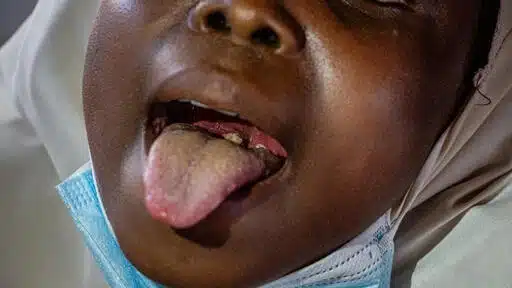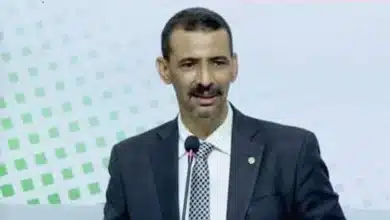Rapid response halts diphtheria outbreak among refugees in Mauritania
Rapid response halts diphtheria outbreak among refugees in Mauritania

Diphtheria
WHO deployed technical experts to support case investigation, contact tracing and coordination with national and local teams
NOUAKCHOTT, Mauritania, August 18, 2025/APO Group/ — When children in Mberra refugee camp began arriving at health posts with sore throats, low-grade fevers and swollen necks early this year, health workers feared the worst. Within days, breathing difficulties and the tell-tale thick grey coating in some throats confirmed an outbreak of diphtheria.
In a densely populated refugee setting with limited health infrastructure, even a handful of cases could quickly spiral into crisis. Mauritania’s Ministry of Health, supported by the World Health Organization (WHO) and humanitarian partners, moved fast. Within 72 hours of laboratory confirmation, a full outbreak response was under way.
Between July and September 2024, at least ten cases of diphtheria, including two deaths, were recorded in the Mberra camp. Of these cases, eight were in children, six of whom were under five years of age, all of whom were unvaccinated. In response, more than a thousand people were vaccinated, including nearly 70 health professionals.
In addition, over two tonnes of emergency supplies were delivered to the camp, including antitoxins, antibiotics, personal protective equipment and disinfectants. WHO deployed technical experts to support case investigation, contact tracing and coordination with national and local teams. Community health workers were rapidly trained to identify symptoms, isolate cases and provide prevention education to families.
“Before the training, many of us had never seen a case of diphtheria,” says Fatou, a community health volunteer. “Now we know what to look for, and how to respond.”
A targeted risk communication and community engagement campaign used megaphones, posters and local radio in multiple languages to build trust, educate communities and ensure early reporting of symptoms.
Thanks to this rapid, coordinated approach, the outbreak was contained within weeks. No deaths were reported, and all cases remained confined to the initial cluster.
« This was a textbook example of what rapid mobilization and partnership can achieve, » says Dr Charlotte Faty Ndiaye, WHO Representative in Mauritania. « In a fragile setting like Mberra, early action saved lives. »
The experience underlined the importance of preparedness, coordination and community engagement in humanitarian contexts. WHO and partners, working hand-in-hand with Mauritania’s Ministry of Health, turned a looming health emergency into an example of public health equity in action.
Awareness-raising campaigns were carried out in communities and among humanitarian personnel to encourage vaccination, with a particular focus on diphtheria prevention. Between July 2024 to May 2025, more than 2300 newly arrived individuals at Mberra camp were vaccinated.
Distributed by APO Group on behalf of World Health Organization (WHO) – Mauritania.




